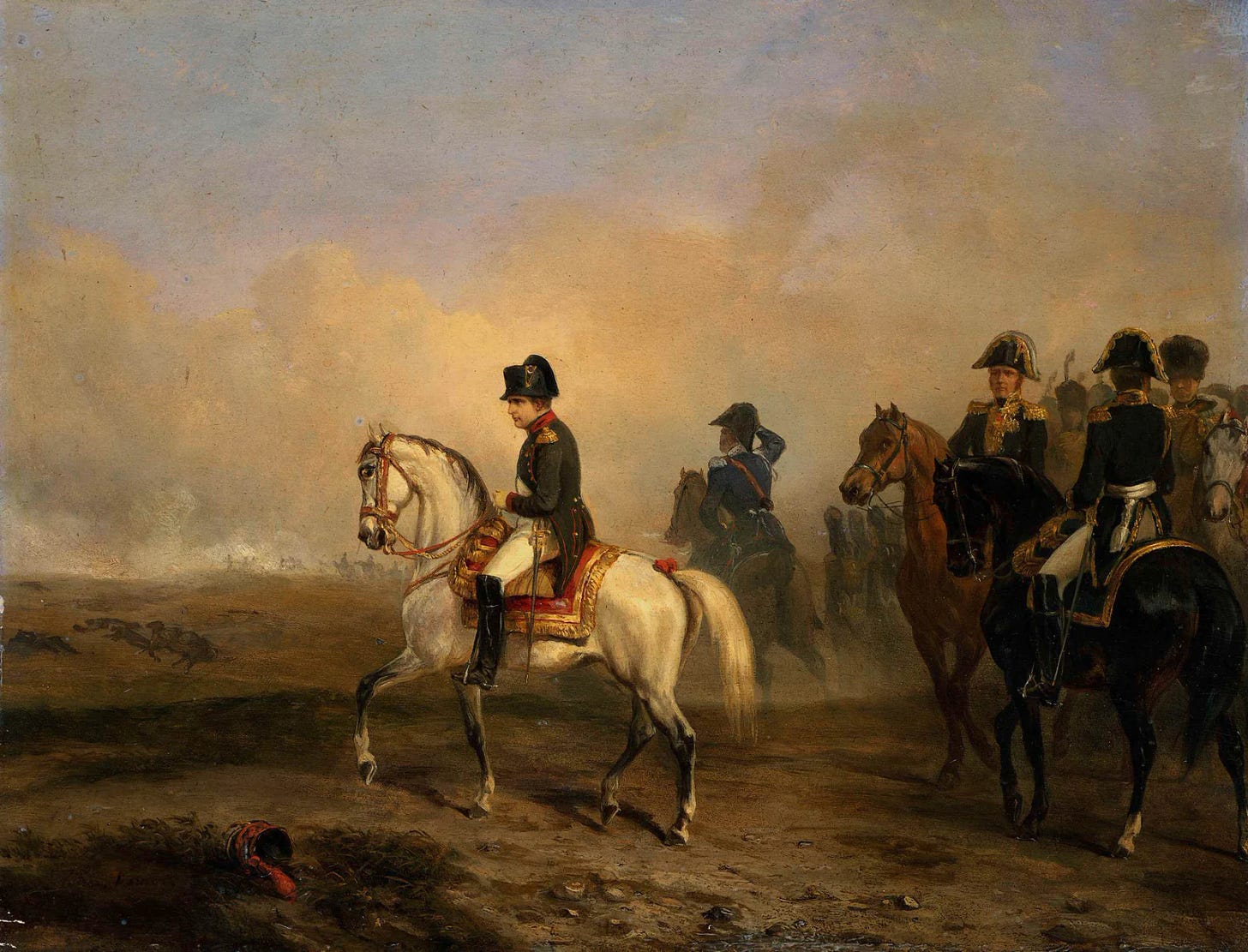Check out my new book (“Napoleon: The Revolutionary Hero”), available on Amazon!
Prussia’s War
By 1806, Napoleon was Europe’s master. After defeating Austria and Russia, the mighty French Emperor reorganized the German lands into the Confederation of the Rhine. But this angered another European power: Prussia.
Led by Frederick Wilhelm III, the Prussians declared war on France. But it would be his biggest mistake!
In October of 1806, Napoleon crushed the Prussians at the Battle of Jena-Auerstedt. The twin cities are both located in what is now Germany.
Crushing Russia
Napoleon went after the Russians to the east, in what is now Poland. He won a hard-fought battle at the East Prussian town of Eylau in early February of 1807. Although a French victory, Bonaparte was not able to decisively defeat the Russians.
Napoleon again engaged the Russians at the Battle of Friedland, a little further north, in June of 1807. This time, he was able to decisively defeat the Fourth Coalition.
Treaty of Tilsit
Having defeated his enemies, Napoleon secured the Treaties of Tilsit in July of 1807. He held separate treaties with Russia and Prussia. While Napoleon respected the Russians, and even befriended Tsar Alexander, the French general did not respect Prussia at all.
Under the treaty, Prussia was stripped of its territory, which was then reorganized as the pro-French Kingdom of Westphalia. There, Napoleon installed his brother Jerome as its king.
Continental System
Having subdued Austria, Russia, and Prussia, Napoleon set his sights on his final enemy: Great Britain.
While Napoleon dominated continental Europe, the British dominated the oceans. Britain was a formidable power, with the world’s strongest navy and an early industrialized economy.
To cripple Britain’s war machine, Napoleon led a Europe-wide boycott of British goods. This embargo was a form of economic warfare against the Brits. Even better for Napoleon, he successfully pressured Russia, a great power itself, to participate in this anti-British boycott.






I enjoy these little history bites! Thank you.